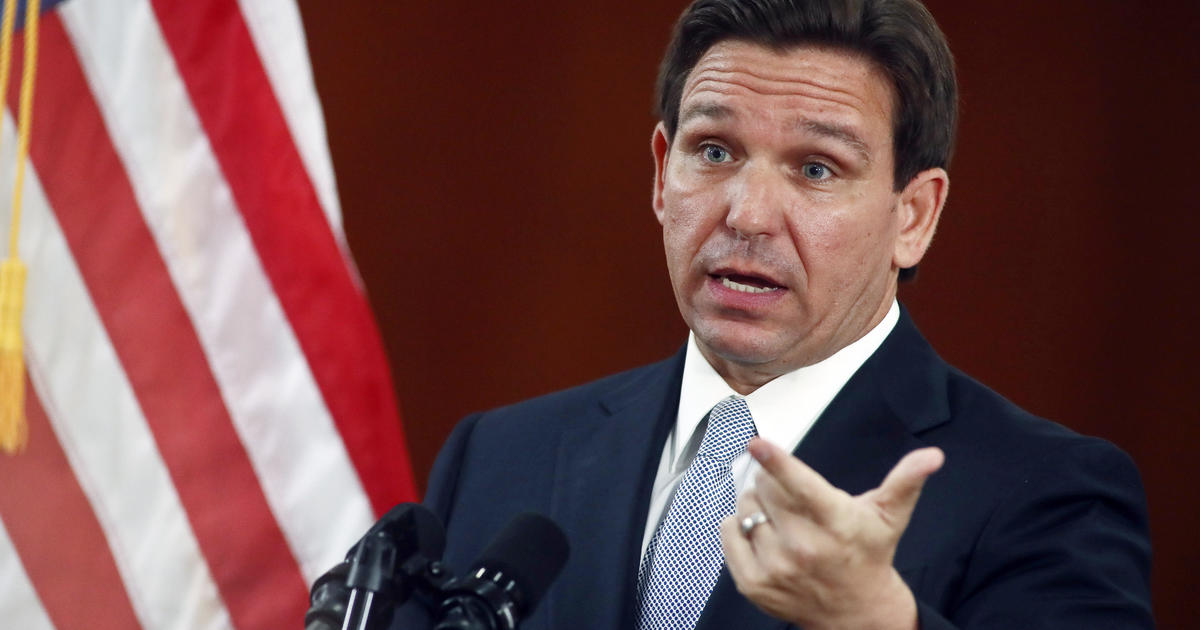Incentives Draw War Of Words On Eve Of House Vote
Follow CBSMIAMI.COM: Facebook | Twitter
TALLAHASSEE (NSF) – The House is poised to vote Wednesday to revamp how the state distributes incentives to private businesses, but it continues showing scant indication it will go along with Gov. Rick Scott's request to earmark $250 million for corporate-recruitment efforts.
Meanwhile, the public-private Enterprise Florida wants the conservative-advocacy group Americans for Prosperity-Florida, the biggest critic of the incentives push, to "suspend" its anti-incentives campaign.
Enterprise Florida President Bill Johnson on Tuesday called Americans for Prosperity hypocritical for lobbying against the incentives while its biggest benefactor, Koch Industries, "has benefited from $196 million worth of incentive money from various governments."
Under Scott's proposal, Enterprise Florida, the state's business-recruitment agency, would administer the $250 million "Florida Enterprise Fund."
"Koch Industries is willing to use taxpayer money to benefit their business, but opposing the Florida Enterprise Fund means they will not let small and growing businesses in Florida access incentive dollars," Johnson said in a release. "AFP should immediately suspend their campaign against the Florida Enterprise Fund, which would help small and growing businesses create jobs for everyday Floridians --- not just corporate giants. What's good for the goose is good for the gander."
Shortly after Enterprise Florida issued Johnson's comment, the governor's office sent out the statement to reporters with an email titled "breaking."
Americans for Prosperity State Director Chris Hudson responded with a release that called Johnson's statement "shortsighted," said the group is "not Koch Industries" and indicated it will continue to push against the incentives.
"EFI (Enterprise Florida), who has come under serious internal scrutiny of late, claims that they are trying to help small businesses create jobs, but the reality is 85 percent of Florida businesses have less than 10 employees and don't qualify for the lavish handouts Bill Johnson and company want to dish out," Hudson said in his statement. "EFI says they want to diversify the economy, but the reality is that almost half of all incentive projects from 2000 to 2010 were for the manufacturing industry."
Earlier Tuesday, the House advanced to a final vote its incentives-process overhaul (HB 1325), which mostly aligns with a Senate proposal on how funds would be handled by Enterprise Florida.
House sponsor Jim Boyd, R-Bradenton, repeatedly noted there is no money tied to the measure. It would address policy issues such as allowing the governor to approve grants under $2 million and only have to provide legislative leaders with a written description of those projects.
"Funding is a conversation for another day," Boyd said.
Also under the proposal, the House speaker and Senate president would have two weeks to file objections to projects in line to get $2 million or more. Incentive deals drawn from the Florida Enterprise Fund --- currently the Quick Action Closing Fund --- would be required to have at least a 20 percent local financial match. Projects would be intended to create at least 10 jobs, and no payments would be made until performance conditions are met. Also any company getting an incentive deal would have to provide a 3-to-1 return on investment.
The Senate has proposed a 2.5-to-1 return on investment.
Rep. Jose Javier Rodriguez, D-Miami, asked why backers of the proposal agreed to reduce the required return on investment from an earlier 5-to-1 to 3-to-1.
Boyd said the 5-to-1 return is "not as realistic."
While mostly Democrats peppered Boyd with questions about the package, the process also drew fire from some Republicans who have equated Scott's incentives as "corporate welfare."
Rep. Fred Costello, R-Ormond Beach, said he may have a tough time supporting the process if the vote Wednesday is the only time lawmakers get to approve a measure that would be tied to the eventual incentives dollars.
"If I can't vote on that number, I'm not ready to support the process," Costello told Boyd.
Scott's incentives request is a jump from the $43 million that was put in the current year's budget. The Senate has matched Scott's $250 million request in its proposed budget for the fiscal year that starts July 1.
Democrats failed Tuesday to make changes to the House bill to require Enterprise Florida to equally match state money with private sector dollars for incentives and daily operations.
The House did amend the bill to require the Department of Economic Opportunity's incentives portal to include information related to incentives contracts.
Leaders of the House and Senate have acknowledged that as they patch together the budget over the next two weeks compromises will be needed on Scott's requests, which also include $1 billion in tax cuts.
In a release Tuesday announcing the opening of Ashley Furniture's Global Retail & Ecommerce offices in Tampa, Scott continued to stand by his requests.
"By cutting $1 billion in taxes and creating the new $250 million dedicated Florida Enterprise Fund this year, we want more companies like Ashley Furniture to grow in Florida," Scott said in a release.
The News Service of Florida's Jim Turner contributed to this report.



